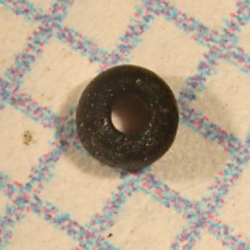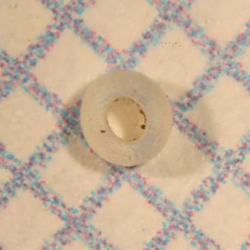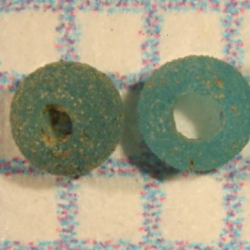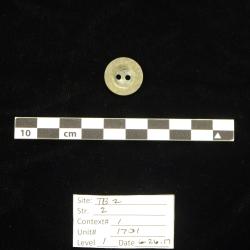Archaeologists from the New York State Museum and the University of Albany completed two collaborative field schools in Historical Archaeology at the Ten Broeck Mansion, located in Albany, NY's Arbor Hill neighborhood during the summers of 2017 and 2018. These excavations concentrated on outbuildings associated with the estate resulting in the recovery of thousands of artifacts. Archaeologists were particularly interested in an outer kitchen that once stood just southwest of the 1798 brick house. Maps and previous excavations on the site indicated the approximate location of the outer kitchen, and excavations recovered the southern edge of the building.
Outer kitchens were common on large estates in New York and were primary spaces where enslaved African-Americans prepared food before slavery was abolished in the state in 1827. Ten slaves were living on the Ten Broeck estate in 1800 tending the gardens, cooking food, and performing other tasks. A layer of trash discovered on the southern side of the kitchen contained ash and charcoal from the fireplace along with many personal objects possibly belonging to African-Americans who spent much of their time in and around this outbuilding. Among the ceramics, tobacco pipes, and food remains were buttons, beads, and other clothing items worn by the enslaved people living on the Ten Broeck estate. These artifacts are incredibly rare examples of the material possessions of African-Americans who lived in Albany prior to the abolition of slavery in New York in 1827. Comparative analysis of the collection is currently underway at the museum.







